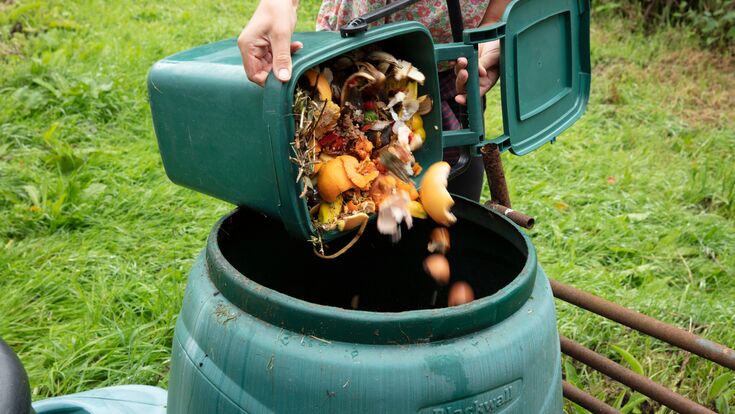Biowaste : How to scale composting in the US?

In a world grappling with the escalating effects of climate change, waste management has become a pivotal issue. Among the various types of waste generated daily, biowaste—organic material that can decompose naturally—represents a significant portion that is often overlooked. However, diverting biowaste from landfills is more than just an environmental best practice; it is a critical step toward sustainable living and climate mitigation. However many countries struggle with scaling their infrastructure to deal effectively with the daily amount of organic waste.
For that reason, the Composting Consortium, a collaboration of leading voices across the composting and compostable packaging value chain led by the Center for the Circular Economy at Closed Loop Partners, has released a new blueprint to guide municipal zero waste, solid waste and sustainability leaders in building and scaling composting infrastructure and organics management programs across the US. How Organics Diversion Can Help Achieve Zero Waste Goals: A Blueprint for Action, co-authored with Eco-Cycle of Boulder, Colorado, is an essential guide for communities looking to develop food waste collection programmes and work with composters to achieve zero waste and climate goals. Alongside the release of the Blueprint, the Consortium is inviting US municipalities and composters to join two newly launched platforms to help municipalities and composters scale organics infrastructure.
Related article: Closed Loop Partners and U.S. composting industry launch large-scale in-field degradation tests for compostable packaging
Fighting greenhouse gas emissions
Food waste in landfills is a major source of methane, a greenhouse gas even more potent than CO2 that significantly contributes to climate change. The diversion of food waste and yard waste through municipal organics programmes not only reduces methane emissions but also provides environmental benefits such as improved soil health, water conservation, carbon sequestration, and support for the local economy and ecosystems. To support this diversion, the US composting industry is in the early stages of transformation. More composters are seeking to accept and process more food waste. According to the Composting Consortium, approximately 70% of composters that process food also accept and process some form of food-contact compostable packaging, with the understanding that accepting these materials helps bring more food waste into their facilities. However, only 10% of US households have access to organics recycling through drop-off and curbside organics collection programmes, and only 4% of food waste is currently sent to composters. But, as circular economy expert Marco Ricci said in a recent interview with Waste Management World, curbside collection is the most effective method for collecting biowaste in urban areas: "The most effective approach is a collection at the doorstep of kitchen waste; it shows the best results in terms of quantities (per capita) and of quality (reducing the contaminants collected with organic waste). It’s an approach followed by a number of cities in Europe such as Milan, Bratislava, Munich and many others."
The Consortium's aim is to change this statistic in the US, says Kate Daly, Managing Director and Head of the Center for the Circular Economy at Closed Loop Partners. “By creating this blueprint, we aim to equip municipal leaders with a basic ‘how-to’ manual to launch or scale successful organics programs that contribute to a zero-waste future, clean organics streams and a thriving composting industry.”
Related article: Why - and how - biowaste should be collected separately
The blueprint, How Organics Diversion Can Help Achieve Zero Waste Goals, provides a clear and actionable framework, including:
- Policy and Program Expansion for Diverting Food Waste: This section does a deep dive into effective strategies for policy development. It explores methods to incentivize resident and business participation, while outlining pathways to maximize food waste diversion from landfills.
- Setting Up Programs and Infrastructure: This section provides a clear roadmap for establishing new organics programs. It details best practices for collection methods, explores various processing options (composting facilities, anaerobic digestion), and offers guidance on navigating the critical process of contracting with composters.
- Communication with Program Participants: Recognizing the importance of resident and business engagement, this section provides a comprehensive communications toolkit. It outlines strategies for educating participants on proper sorting techniques, maximizing program participation and fostering long-term program success.
Close collaboration needed
Scaling up organics management in a sensible way requires key stakeholders to work together. This will help ensure that composting programmes and infrastructure are developed to meet the diverse needs of stakeholders across the organics value chain - from composters to cities, residents, businesses and more. Alongside the release of the Blueprint, the Composting Consortium is launching two new platforms to engage directly with communities and composters across the country to support the scale-up of robust composting infrastructure.
The Composting Consortium's new Composter Innovator Program aims to bring composters from across the US to the table to play an active role in shaping the future of the composting industry on issues such as contamination, policy and funding for food waste composting infrastructure. Among the important issues the group will address are determining the cost of processing compostable packaging and making recommendations on how to allocate Extended Producer Responsibility funds to support the development of composting infrastructure. The Consortium is inviting composters across the US to sign up for the programme and get involved in the growth of composting infrastructure in the US.
New platform to connect stakeholders
The Consortium is also launching its Municipal Partner Platform, a free platform for city officials focused on sustainability, zero waste and waste management. The platform connects officials with leaders across the country to share and discuss best practices for starting and expanding organics collection and infrastructure programs. Municipalities of all sizes and stages of development are invited to contact the Composting Consortium to explore how the network can help them meet their food waste diversion goals.



